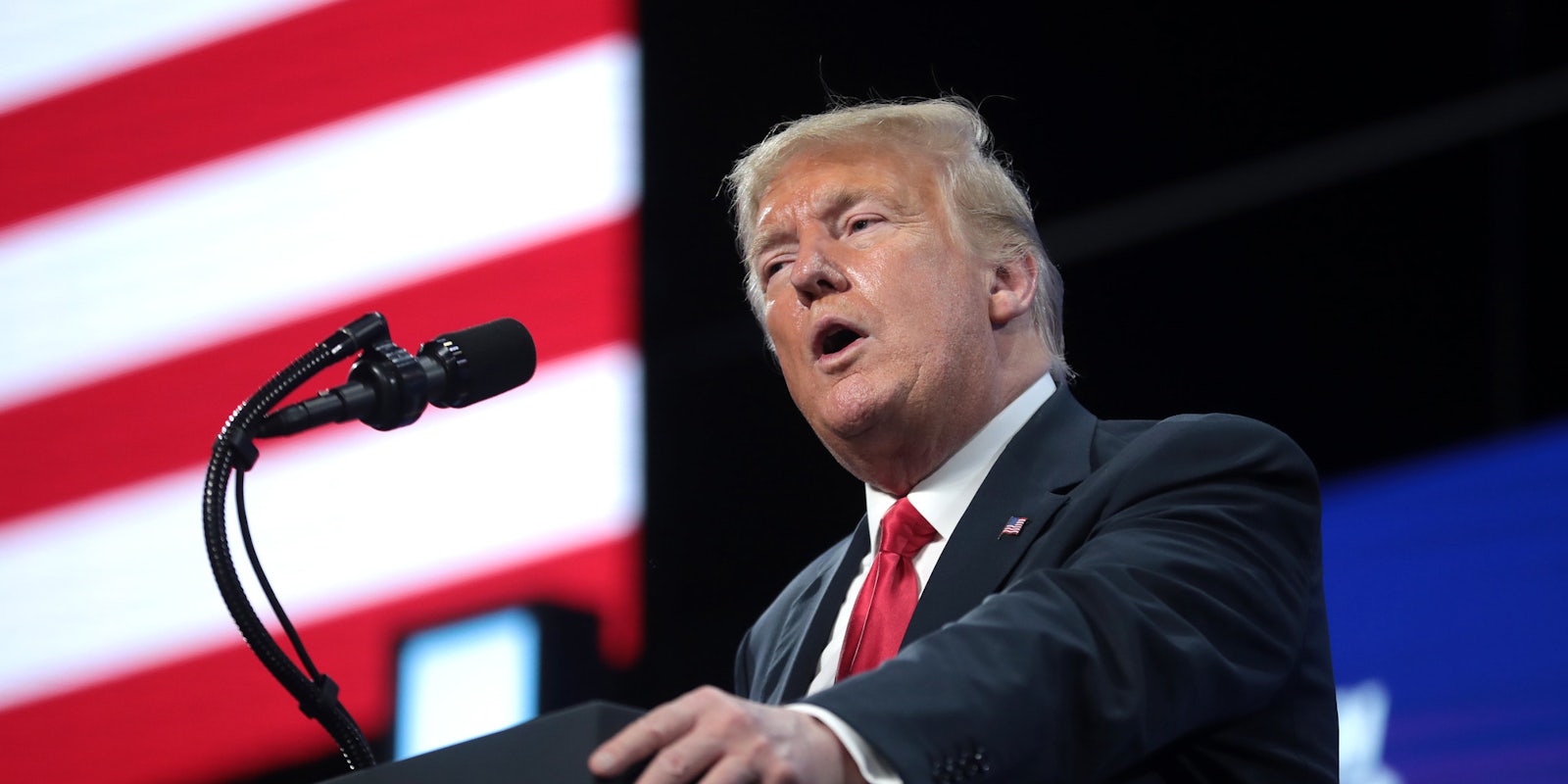President Donald Trump’s controversial social media order targeting Section 230 of the Communications Decency Act survived a legal challenge in California after a federal judge declined to halt it.
The Trump administration was sued by several get-out-the-vote groups shortly after the president signed his social media executive order in August. Trump signed the order shortly after having his tweets fact-checked by Twitter.
The groups, headlined by Rock the Vote, argued that Trump’s order violated the rights of voters on social media who tried to get information about mail-in voting and violated the rights of companies who are trying to have accurate information on the platforms. The suit sought a preliminary injunction to halt the executive order.
This suit is separate to another one filed by Center for Democracy and Technology that is also challenging Trump’s order.
On Thursday, Judge William Orrick denied the motion for an injunction, arguing that the groups did not show how they were impacted directly by the order and “failed to adequately allege standing to bring this action.”
In order for an injunction to be granted, the groups would have had to adequately show that they are likely to succeed in their suit and that they would suffer irreparable harm because of the order.
Orrick said they did not adequately argue those points.
“Because plaintiffs have not alleged facts demonstrating that platforms have reduced or curbed their fact-checking activity, they have failed to establish an injury-in-fact traceable to the Executive Order,” Orrick wrote.
Orrick’s decision seemed to be forecasted. As Courthouse News Service reported last week, Orrick outlined his issues with it during a virtual hearing about the motion for an injunction.
“It’s not clear to me that the executive order does anything other than outline a policy goal from the president’s perspective regarding content management on the internet and telling agencies to further that goal,” Orrick said, according to Courthouse News Service. “It’s not direct regulation or restriction of the platforms.”

